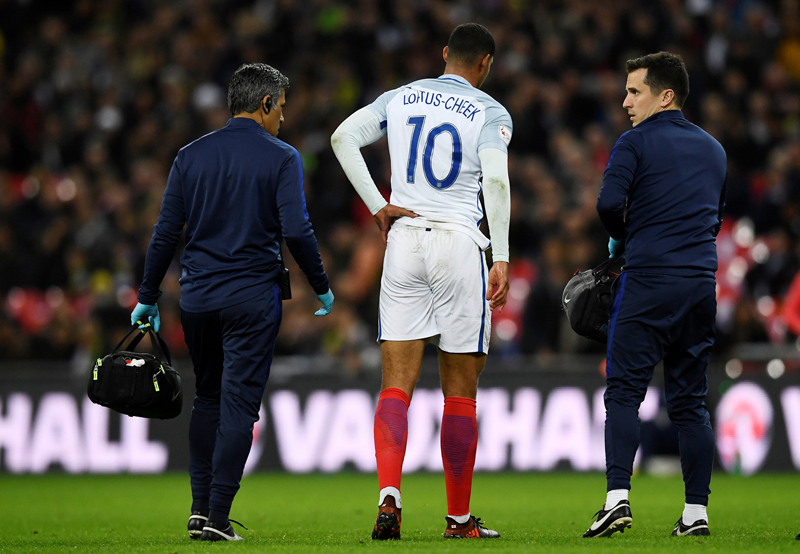Given that even a mild bout of illness can result in a serious setback for fitness, what can athletes do to protect themselves? Andrew Hamilton looks at some intriguing new research from the field of immuno-nutrition and offers some practical advice…You’ve trained long and hard to build peak fitness and perfected your diet and mental preparation for the big day. Then out of the blue, disaster strikes and you’re flat on your back with full-blown flu. Not only does your fitness plummet through inactivity during illness, you also lose precious days or weeks of quality training as you slowly get back to full strength once you resume training. It’s a thoroughly depressing scenario, but with some health experts predicting a more widespread and virulent outbreak of swine flu over the coming months, one that could become reality for some of us this winter.
Maintaining maximum immunity can often mean the difference between success and failure during the season, and although it’s not priority for most athletes, it should be. That’s because athletes are especially vulnerable to upper respiratory tract infections (URTIs – coughs, colds, flu, etc) as a result of post-exercise immunosuppression in which certain elements of the immune system become temporarily depressed after heavy bouts of exercise(1,2).
In particular, it appears that during recovery from prolonged or intense exercise the number and activity of key immune cells, such as lymphocytes, natural killer cells in the blood, is reduced(3,4). There’s also evidence that when exercise is performed during the incubation period of an infection, the symptoms are more severe and the duration of illness longer(5).
Fundamentals of immune protection
The fundamental building blocks of maintaining a strong and healthy immune system when training are actually fairly straightforward. Firstly, it’s absolutely critical that in the short term your training programme is correctly constructed to allow you plenty of recovery after long or hard sessions; and in the longer term, it allows long blocks of time to permit a deeper recovery – for example, at the end of a season.These principles are also central to the concept of ‘periodisation’, which has been discussed comprehensively in previous issues of PP. Without proper rest and recovery, overtraining becomes a real risk, greatly increasing the risk of an URTI(6). Figure 1 shows how the risk of URTIs increases when training loads become very high. Note that at modest training loads, URTI risk is actually lower than when little or no training is done. Although this might at first seem contradictory, it’s entirely consistent with the evidence that people who train moderately have higher levels of overall fitness than those who do little training because higher physical fitness is associated with enhanced immunity in the long term. It’s only at high volume/more severe training loads that URTI risk increases again.
The second area of focus should be to optimise your diet in general and training nutrition in particular. In more general terms, it’s important that you keep you diet as rich in nutrients as possible (see box 1) since even minor nutritional shortfalls may impair immunity. It’s also critical (particularly when training volumes are high) that you consume ample carbohydrates before, during and after training (see box 2) as research indicates that low muscle glycogen training is associated with lowered immunity and increased risk of infection and illness(7).
Once the fundamentals are in place, what else can you do to enhance your immunity and minimise your risk of contracting an URTI? There are a number of popular supplements marketed as ‘immune boosters’ but the scientific evidence in their favour is rather patchy. For example, early studies on vitamin C for the prevention of URTIs initially seemed promising(8,9), but later studies proved inconclusive(10,11). The same is true of the herb echinacea; while there has been the odd encouraging study(12), a number of others have drawn blanks(13-15).
Quercetin
More recently, however, some less well known nutrients have been receiving attention from scientists and yielding promising results. One of these is the naturally occurring plant antioxidant called quercetin (see also ‘What The Papers Say’ in this issue). Quercetin is found in many different fruits and vegetables that most of us eat on regular basis, including red grapes (and therefore also red wine), red apples, red onions, green tea, broccoli.In a landmark study published in 2007(16), 40 trained male cyclists were randomised into two groups of 20; the quercitin group received three weeks of quercetin supplementation (1000mg per day) before, during, and for two weeks after a 3-day period in which subjects cycled for three hours per day at approximately 57% of their maximum power output. The control group followed exactly the same protocol, but instead took a dummy (placebo) pill.The scientists were particularly interested in the effect of quercitin on markers of immune function, so blood and saliva samples were collected before and after each of the three exercise sessions and measured levels of natural killer cell activity (NKCA), PHA-stimulated lymphocyte proliferation (PHA-LP), polymorphonuclear oxidative-burst activity (POBA), and salivary IgA output (sIgA) – all of which can be used to assess immune activity.
The results obtained were both surprising and contradictory; compared to the control group, the cyclists taking quercitin showed no improvement in any of the immune function markers tested above. However, when the researchers investigated the incidence of upper respiratory tract infections (coughs, colds, sore throats, etc) in the 2-week post-exercise period, they discovered that quercitin supplementation significantly and dramatically cut the incidence of illness. Whereas nine of the control group became ill, only one of the quercitin group suffered an infection!
One of the scientists involved in the research subsequently commented: ‘These are ground-breaking results, because this is the first clinical, double-blind, randomised, placebo-controlled study that has found a natural plant compound to prevent viral illness.’ However, it should also be pointed out that despite this very promising initial research, the lack of follow up studies means that in scientific terms, the jury is still out on quercetin.
Cystine and theanine
Many athletes with an interest in nutrition are familiar with the concept of amino acids. Amino acids are small molecules containing nitrogen that are used to assemble large protein molecules, which explains why they’re often referred to as ‘protein building blocks’. The food we eat contains about 20 different types of amino acids, eight of which are ‘essential’ because they can’t be synthesised in the body from other amino acids and so must be present in the diet.Scientists have long understood that an ample intake of protein in the diet (providing plenty of amino acids generally) is essential for proper immune function. However, some recent research is indicating that two amino acids known as cystine and theanine, which are only found in the diet at low levels, may enhance immunity when supplied at higher levels.
Cystine is actually composed of a pair of another type of amino acid molecules called cysteine, chemically linked. In the human body, cystine is often used to help larger proteins fold into their correct functional shapes. One of the richest nutritional sources of cystine in the diet is from unprocessed whey proteins found in milk.
Theanine is not an amino acid as such, but an amino acid derivative found in the diet. It is even less abundant than cystine, the best dietary source being from tea. Theanine easily enters the brain, and has been under investigation for its mood altering properties. In particular, theanine has been shown to reduce mental and physical stress(17) as well as improve cognition and mood when taken in combination with caffeine(18).
An early link between theanine and immune function was established back in 2003 by researchers studying the disease-fighting capacity of immune cells in the body called gamma delta T cells(19). The study included a 4-week trial with 11 coffee drinkers and 10 tea drinkers, who consumed 600ml of either coffee or black tea daily. Subsequent blood sample analysis found that the production of anti-bacterial proteins from these cells was up to five times higher in the tea-drinkers, indicating a stronger immune response.
New findings
However, more recently there’s been a flurry of research into the possible immune benefits of taking a combination of theanine and cystine. In a study carried out on mice, Japanese researchers showed that administering cystine and theanine significantly enhanced the production of antigen specific IgG(20). IgG is the component of the immune system that helps recognise and respond to viruses and bacteria the body has previously been exposed to – for example, if you had a certain strain of flu last year and you’re exposed again, your IgG response helps ensure you don’t come down with it again!To follow up these results, another group of Japanese researchers investigated the effects of cystine and theanine supplementation on immune response in men undergoing repeated high-intensity resistance exercise(21). Fifteen well trained men were divided into two groups and were given either a placebo supplement or a supplement containing cystine (700mg) and theanine (280mg), once a day after dinner for two weeks. The subjects trained according to their normal schedule (3 times a week) in the first week but in the second week, they trained at double the frequency in order to deliberately produce an impaired immune response. Blood samples were obtained 24 hours before the first training session (baseline), 24 hours after the last training sessions of the first week, and after the second week.
The results showed that although some parameters of immune function remained the same in both groups, natural killer cell (powerful immune cells that target viruses) activity showed a 30% decrease in the placebo group after two weeks compared with baseline and 24 hours, whereas the cystine/theanine group did not show any change. Moreover, the scientists showed that activity of protective immune cells called lymphocytes was significantly enhanced in the cystine/theanine group but remained unchanged in the placebo group, indicating the cystine/theanine had stimulated immune defences.
Meanwhile, yet another Japanese study carried out last November investigated the effect of cystine/theanine on antibody induction by influenza vaccines in a group of elderly persons (as they are generally at greater risk from the influenza virus than the rest of the population)(22).
Residents in a nursing home were randomly allocated to cystine/theanine or an inert placebo and the test substances were administered for 14 days before a flu vaccine for the influenza virus A (H1N1) was given. The results showed that while some parameters of immunity were no different between the two groups, in those especially vulnerable subjects who had low levels of blood protein or iron, cystine/theanine supplementation produced a far greater immune response.
Perhaps the most encouraging study in this area was published in April of this year (first reported in ‘What The Papers Say’), and which suggests that cystine/theanine may have an immune reinforcement effects when administered to athletes before a prolonged period of intense exercise(23). Fifteen long-distance runners received either a test food fortified with cystine/theanine for 10 days prior to a period of heavy training, or the same test food but without added cystine/theanine. Clinical examinations were performed before and after the training period in which markers of immunity were measured.
The results showed that following the heavy training period, there was a significant increase in blood markers of ‘immune stress’ (high-sensitivity C-reactive protein and neutrophil count) in the placebo group but not in the cystine/theanine group. In addition, heavy training induced a drop in lymphocytes in the placebo group but not in the cystine/theanine group. The researchers concluded that the ingestion of cystine/theanine helped to suppress the ‘heavy training’ induced immune stress increase observed in the placebo group (thereby preventing a decrease in the immune function) and prevented infection during the period of continuous intense exercise.
How might cystine and theanine work?
Scientists don’t fully understand how a combination of cystine and theanine might boost immunity, but some have speculated that this nutrient combination enhances the production of a naturally occurring compound called glutathione in the body, which has been shown to boost the activity of immune cells.Glutathione can be synthesised from cystine and another amino acid called glutamic acid, which is abundant in the diet. However, dietary glutamic acid tends to be metabolised into other substances during its absorption from the intestine. L-theanine, however, is unaffected in the intestine and instead metabolised to glutamic acid in the liver, providing a ready source for the synthesis of glutathione.
Practical implications
Athletes should be aware of the importance of maintaining a healthy immune system and address the fundamentals of their training and diet to help maximise immunity.New research suggests that key nutrients may further enhance immunity; however, athletes considering supplementation should not neglect other proven strategies such as ensuring that carbohydrate nutrition is adequate for training needs.
Conclusions and recommendations
If you’re an athlete determined to avoid illness, what do these findings mean for you? Well, the first thing to emphasise that unless the basics of good nutrition and a properly constructed training programme with plenty of recovery (outlined earlier) are in place, you’re always going to be struggling. It’s also worth adding that immunity is also affected by lifestyle factors. You need to ensure you get plenty of sleep and relaxation, minimising fatigue and emotional stress where possible. Good hygiene is also important to avoid transferring virus particles to the mucous membranes of the eyes, nose and throat; always wash your hands before eating, or after handling items or equipment that may have been handled by someone else with an URTI – for example, as soon as you leave the gym.For those considering supplementation, the evidence for cystine/theanine and (so far) for quercetin is encouraging. Given that these supplements aren’t free, though, you might want to consider using them strategically – for example, in the run-up to an important competition or at time where other stressors in your life are unavoidable. Finally, don’t forget your best training friend of all – plenty of carbohydrate!
References
1. Journal of Sports Medicine and Physical Fitness 30: 316-328, 1990
2. South African medical Journal 64:
582-584, 1983
3. Immunol Today 15: 382-387, 1994
4. Eur J Appl Physiol 74: 428-434, 1996
5. Scand J Med Sci Sports 2: 177-189, 1992
6. Sports Med 33(5):347-64 2003;
7. Int J Sports Med 26(10):880-5 Dec 2005
8. Am. J Clin. Nutr 57:170-174, 1993
9. African Journal of Sports Medicine 11: 23-27, 1996
10. Int. Journal of Sport Nutrition 7:173-184, 1997
11. Eur J Clin Invest 31(3):258-63 Mar 2001
12. J Clin Pharm Ther, 29(1): 75-83, 2004
13. J Immunother, 25(5): 413-20, 2002
14. Annals of Internal Medicine 137:939-946, 2002
15. JAMA, 290(21): 2824-30, 2003
16. Med Sci Sports Exerc 39(9):1561-9 Sep 2007
17. Biol Psychol, 74 (1): 39–45 2007
18. Biol Psychol, 77 (2): 113–22 , 2007
19. Proc Natl Acad Sci USA1 00 (10): 6009–14 2003
20. J Vet Med Sc 69(12):1263-70 Dec 2007
21. Med Sci Sports Exerc 40(5) S402 2008
22. Geriatrics & Gerontology Int, Vol 8(4), P243 – 250 2008
23. Biosci Biotechnol Biochem 23;73(4):817-21 2009 Apr










